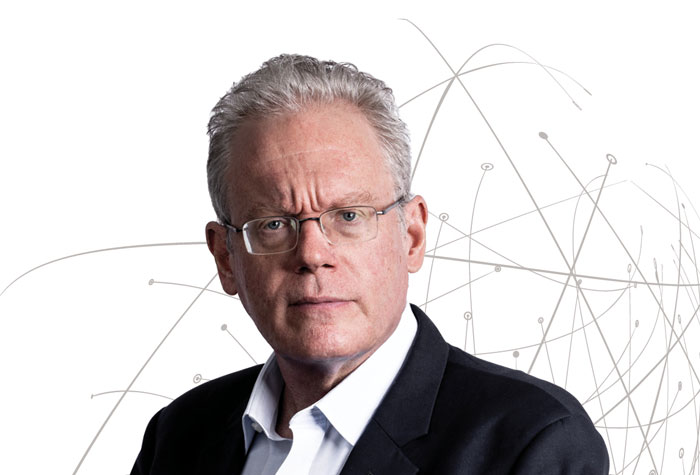
Photo: Caitlin Cunningham
On the Middle East
Despite economic hardships and diplomatic pressures, Middle Eastern leaders, while expressing sympathy for the Ukrainian victims of the war, have refrained from condemning Russia’s aggression.
While the war in Ukraine has so far involved primarily the United States, the European Union, and NATO members opposing Russia’s blatant and bloody aggression, other countries around the world will no doubt bear the war’s adverse economic and political consequences for years to come. The Middle East will be no exception. In assessing the current and the longer-term ramifications of the conflict for the region, we must keep in mind that the countries that comprise today’s Middle East differ considerably from one another in their economic resources, political and security concerns, and strategic ties to outside superpowers. “Arab nationalism,” an ideology that once united the Arab countries of the region, has given way to sectarian and ethnic loyalties, extremist Islamist movements, and territorial ambitions that have led to proxy or outright interstate wars. Moreover, the three most powerful non-Arab states in the region—Iran, Israel, and Turkey—pursue policies and interests that are independent of, or often in conflict with, their Arab neighbors.
In its early stages, the challenges posed by the Ukraine war for the Middle East have been primarily economic in nature, though hardly the same across the region. For major oil- and gas-exporting Gulf Arab states, including Saudi Arabia, Qatar, Kuwait, and the United Arab Emirates, the challenge has been to balance their windfall profits from skyrocketing oil prices against diplomatic pressures from the United States and other Western powers to limit price hikes and increase production levels, at least temporarily. For the non-oil-rich states in the region, the war has caused serious disruptions in the import of vital agricultural products. In Egypt, for example, which relies on Ukraine and Russia for 85 percent of its imports of wheat and other grains, the disruptions have led to sharp increases in the price of bread and other food items, which could further impoverish the poor and lead to social unrest.
Despite these economic hardships and diplomatic pressures, Middle Eastern leaders, while expressing sympathy for the Ukrainian victims of the war, have refrained from condemning Russia’s aggression. The United Arab Emirates, for example, was one of only three countries that abstained from a U.N. Security Council resolution that condemned the Russian invasion last February. (China and India were the other two.) Egypt, shortly after voting in favor of a U.N. General Assembly resolution that condemned the Russian invasion, released a statement that affirmed Russia’s legitimate national security concerns in relation to Ukraine and denounced the sanctions imposed by the U.S. and Europe. In nearly every case, the fence-straddling and reluctance of these states to fault Russia reflect their desire to protect their expanding relations with Russia (and indirectly China) at a time when the U.S. seems intent to reduce its footprint in the region.
Both Israel and Turkey have been cautious in their reactions to the Russian aggression, and they have tried to play an active mediating role between the West and Russia—though with no success. In Israel’s case, the friendly relationship with Russia has included a tacit agreement that allows regular Israeli air strikes on Iranian weapons depots and militias in Syria, with Russian forces looking the other way.
Syria and Iran, in sharp contrast to other Middle Eastern countries, have been unequivocal in their support for Russia. In the case of Syria, whose incumbent regime owes its survival—after a decade of civil strife and deadly attacks by the Islamic State—to Russia’s military intervention and protective shield, President Bashar al-Assad’s explicit solidarity with Russia is hardly surprising. For Iran, growing ties with Russia and the consistent support of its mission in Ukraine are best explained as balancing acts to fend off the crushing economic and political impact of America’s “maximum pressure” policies over its nuclear program, and to ensure protection from a powerful ally in case of a potential military attack by Israel and the United States should the current negotiations in Vienna to revive the 2015 nuclear agreement (JCPOA) fail.
The longer-term political consequences of the war in Ukraine for the Middle East and the rest of the world will depend to a large extent on whether the conflict will be treated by the U.S. and its global democratic partners as an exceptional and transient crisis or, as President Biden has stated more than once, a “battle between democracy and autocracy.” Beyond its clear warning to Russia and, implicitly, to China, the latter view would have significant ramifications for future U.S. dealings and policies toward the Middle East.
Perhaps more than any other world region, the Middle East has long suffered from a combination of three factors: authoritarian rule in “rentier” states that rely on their enormous oil revenues to win their citizens’ loyalties and subservience; the support of such states by world powers motivated by their own economic interests and priorities; and the rise of extremist Islamist ideologies. Creating an alliance of nations committed to democratic governance and adherence to international rules and norms would be a tall order, but declaring such ideals as the guiding principles in international relations and, more specifically, in how we deal with authoritarian regimes would be a laudable step forward. Such declarations, as they become part of the official and public discourse on foreign policy, could also provide an ethical compass by which we could measure the extent to which our past policies toward autocratic regimes in the Middle East and elsewhere have digressed from these ideals. 
Ali Banuazizi is a research professor of political science who studies the political cultures, religions, civil society, and politics of the Middle East, as well as the social history, contemporary domestic politics, and foreign relations of Iran.


 print
print mail
mail



